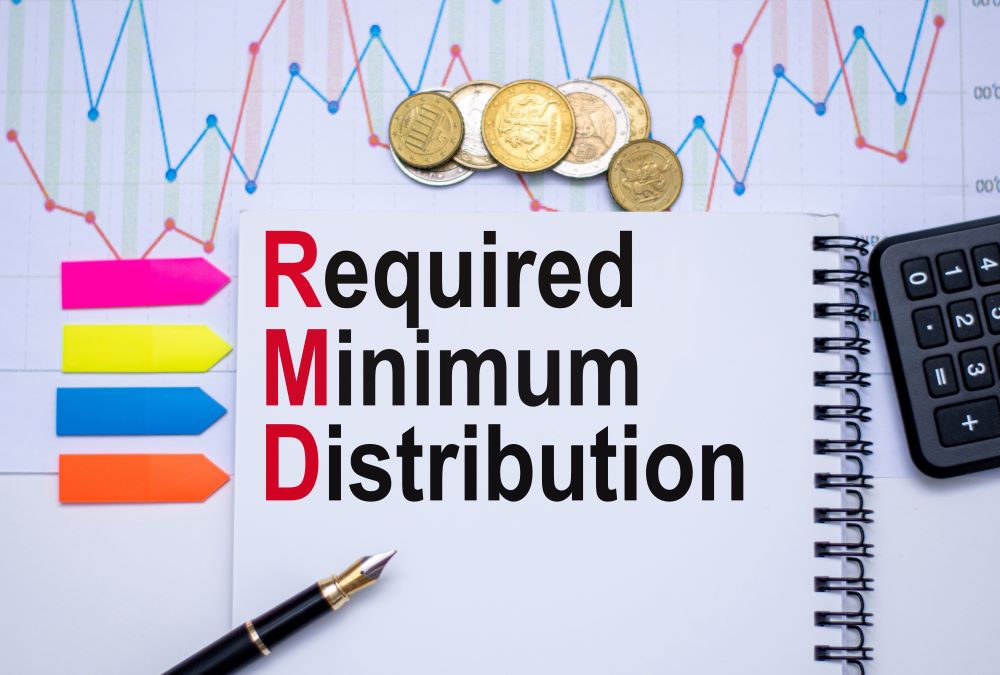2020 Required Minimum Distribution Waiver Update

The tax landscape has been in a constant state of flux since the onset of the COVID-19 Pandemic. The combination of restrictive stay at home orders and forced business closures have created immense financial stress on individuals and families. As the demand for services and products was stunted, many businesses were forced to terminate or furlough employees. Concerned about the health of the economy, Congress passed the Coronavirus Aid, Relief, and Economic Security (CARES) Act, which modified several tax rules and provided economic aid and other relief measures to help businesses and individuals navigate financially through the Pandemic.
One such measure passed was a waiver of the Required Minimum Distribution (RMD) requirements for 2020 for participants in defined contribution plans and taxpayers with Individual Retirement Accounts (IRAs). In addition to waiving the requirement for distributions, the government allows taxpayers that previously received distributions to roll them over and avoid the conversion of losses that may have been recognized. We have provided a summary of the key details below.
RMD Relief Highlights
The IRS recently issued guidance in Notice 2020-51 to extend taxpayers’ timeframe to rollover prior minimum distributions. The Notice provides relief as follows.
- Rollover of RMDs – Retirement plan participants who have already received 2020 RMD distributions, have until August 31, 2020, to roll over these distributions to an IRA. Typically, plan participants are not allowed to rollover minimum distributions. However, they are permitted for 2020.
- Repayment of RMDs – Plan participants and IRA account owners can also repay previously distributed RMDs from their qualified plan or IRA if it is completed on or before August 31, 2020.
- Other distributions for both of the above can be rolled over after August 31, 2020 as long as they are done within 60 days of the distribution. Also, any rollover made in conjunction with these relief provisions will not be counted against the one rollover per 12-month period limitation.
RMD Relief FAQs
Below is a brief list of some of the frequently asked questions regarding the relief provision.
Does the account provisions of an IRA need to be amended for the waiver of 2020 RMD? No. Although the waiver applies to IRAs, no amendments need to be made in order to participate.
Do the relief provisions extend the time for making a direct rollover from a non-spouse designated beneficiary account? Yes. The relief provisions extend the time for making a direct rollover from a non-spouse designated beneficiary account if the participant died in 2019. If the 5-year payout rule applies to a benefit under a plan, the non-spouse designated beneficiary may determine the amount that is not eligible for rollover because it is an RMD using the life expectancy rule in the case of a distribution made before the end of the year following the year of death. This particular rule in Notice 2007–7 is now modified so that if the employee’s death occurred in 2019, the non-spouse designated beneficiary has until the end of 2021 to make the direct rollover and use the life expectancy rule.
Does the waiver of 2020 RMD affect an individual’s required beginning date? No. The waiver of the 2020 RMD does not change an individual’s required distribution beginning date. For example, if an individual has a required beginning date of April 1, 2020, and dies in 2020 having not taken a distribution, then the minimum distribution requirements for that individual’s beneficiaries commence as scheduled regardless of whether they had taken a distribution in 2020 or not.
Can distributions made from a plan be rolled over back into the same plan? Yes, distributions from a plan may be rolled over into the same plan, provided the plan permits rollovers and satisfy rollover requirements.
Is an IRA trustee, issuer, or custodian required to notify IRA owners that no RMD is due for 2020? Yes, an IRA trustee, issuer, or custodian must notify an IRA owner that no RMD is required for 2020. This requirement is satisfied if a copy of the Form 5498 filed with the IRS is furnished to the IRA owner.
Contact Us
The extended relief provides an opportunity to reverse market losses incurred as well as defer taxes and avoid penalties in not taking distributions normally required. The time is now for taxpayers to review their situation and determine whether a minimum rollover is something they should consider. For others considering not taking a required minimum distribution on account of the act, there are many factors to consider before ruling out a minimum distribution. If you have questions about the information outlined above or need assistance with other tax or retirement planning-related issues, Klatzkin can help. For additional information, click here to contact us. We look forward to speaking with you soon.
The above represents our best understanding and interpretation of the material covered as of the date of this post. Things are moving at a rapid pace, and as such, information is subject to change. This information is provided for informational purposes only and is not intended to be a substitute for obtaining accounting, tax, or financial advice from an accountant.
